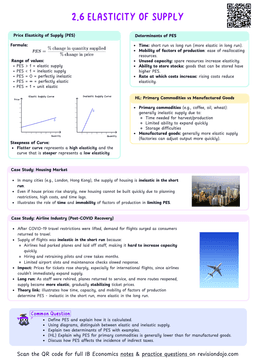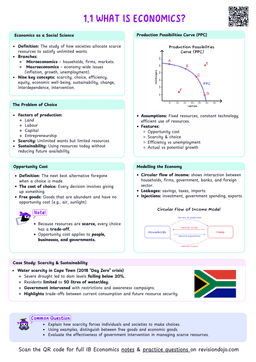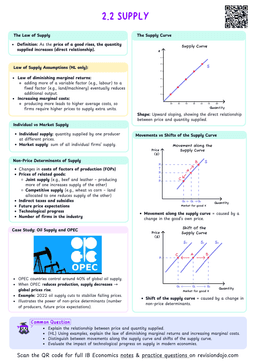Unlike market-based approaches, interventionist supply-side policies involve direct government action to enhance productive capacity.
NoteInterventionist policies are based on the view that markets alone cannot achieve optimal economic outcomes.
Education and training
- Government-funded education programs increase labour force skill levels and productivity.
- Vocational training schemes help match worker skills with industry demands.
- Retraining programs assist structurally unemployed workers in acquiring new skills.
- Educational subsidies enable broader access to skills and development opportunities.
Germany's dual education system combines classroom learning with workplace apprenticeships to develop a highly skilled workforce.
Improving quality, quantity and access to health care
- Public healthcare systems ensure workers maintain good health and productivity.
- Universal healthcare access reduces time lost to illness and improves labor quality.
- Preventive healthcare programs enhance long-term workforce productivity.
- Mental health services support sustained workforce participation.
The UK's National Health Service demonstrates how universal healthcare access supports workforce productivity through preventive care and early intervention.
Research and development
- Government research grants stimulate technological innovation.
- Public research institutions develop new technologies for industry use.
- Patent protection systems encourage private sector innovation.
- Research tax incentives promote corporate R&D investment.
Provision of infrastructure
- Transport networks reduce business costs and improve market access.
- Communication systems enhance business efficiency and market connectivity.
- Power and utility infrastructure supports industrial development.
- Public facilities enable more efficient economic activity.
Industrial policies
- SME (Support for small and medium-sized enterprises or firms) support programs provide targeted assistance to growing businesses.
- Industrial grants encourage development in strategic sectors.
- Regional development initiatives promote balanced economic growth.
- Technology adoption programs help modernise traditional industries.
Students often confuse industrial policy with protectionism. Industrial policy focuses on enhancing productivity and competitiveness, not just protecting domestic industries.


